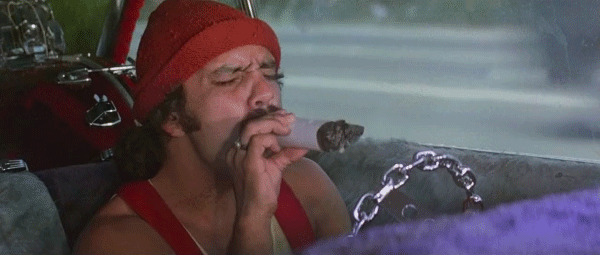Cannabis consumers want Hollywood to abandon stoner stereotypes
For decades, the Hollywood stoner stereotype has tainted the cannabis scene
A new survey has revealed an interesting insight into the use of stoner stereotypes in Hollywood productions.
While it might have worked well for movies like Pineapple Express and Cheech and Chong, cannabis consumers want to abandon the Hollywood stoner stereotype for good.
It seems that the voices of cannabis consumers are already being heard, with the Netflix series ‘Disjointed’ recently being discontinued after viewers complained about users of the green plant being portrayed as lazy onscreen.
Hollywood stoner stereotype could hinder the success of future productions

Cannabis use is quickly becoming normalized and as the list of medical benefits grows, so does the number of consumers. Children, elderly individuals, and employed professionals make up a significant portion of today’s cannabis consumers.
With such diversity in the industry, it is understandable why the people who are pro-cannabis want the plant’s negative stigma to be eliminated by the television and motion picture industry. Failure to do this could severely impact the success of future productions.
Miner and Company recently released the survey. This award-winning strategic research agency revealed how members of the cannabis community are desperate for Hollywood writers and producers to banish the stoner stereotype and portray users more accurately.
For decades, the Hollywood stoner stereotype has tainted the cannabis scene.
Those who participated in the survey felt that the longer mainstream media continues to represent cannabis consumers as being “dumb stoners,” the more obstacles society will face in getting on board with cannabis reform.
“Media has played an incredibly important role in the societal acceptance of cannabis consumption, but there’s still work to do,” president of Miner & Co. Studio, Robert Miner, disclosed in a statement.
“The same recognizable trope of the harmless silly stoner that drove normalization has now become an impediment to acceptance for productive and engaged consumers of cannabis,” he continued.
Change wanted from workers in recreational and medical cannabis sectors

Both recreational and medical cannabis consumers want Hollywood to ban the stoner stereotype.
If the industry is to survive, a more valid portrayal of the modern cannabis community is essential, even if it is fun to watch stoners ripping bongs on screen.
“Recreational consumers feel concern that non-consumers of cannabis will take them less seriously and question their judgment,” Miner said.
“And consumers of medical marijuana too often find that they need to be careful discussing their use with some peers or employers who may see them as unreliable or lazy based on ingrained stereotypes of cannabis use – even for medical needs,” he added.

A whopping 77 percent of the cannabis consumers who participated in the recent survey earn an annual salary of over $75,000.
Hollywood executives should pay close attention to this because aside from the fact that these people have money to spend on cannabis products, they are also able to watch cannabis-themed movies, as well as stream services that require a subscription fee.
“TV and media, in general, have played a role in reinforcing these perceptions. When a character on a show drinks a beer or a glass of wine, they aren’t presented as an out of control drunk or an alcoholic – but consumption of cannabis in any amount far too consistently turns that character into a zoned out bumbling stone,” Miner said.
He also discussed the impact that these false representations could have on the industry at large. With help from the creative community, consumption can be presented in a better light, which is sure to be well-received by viewers.








